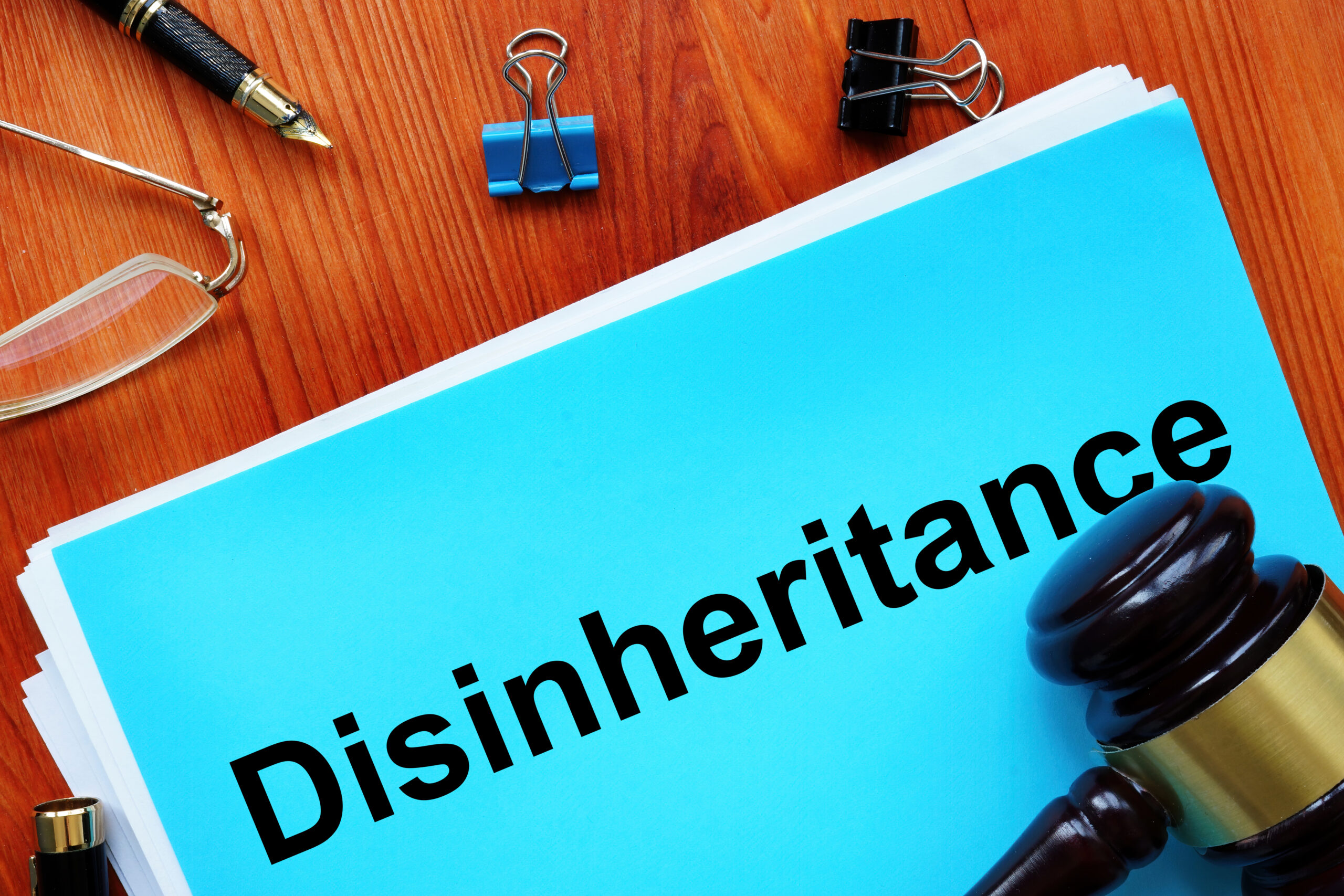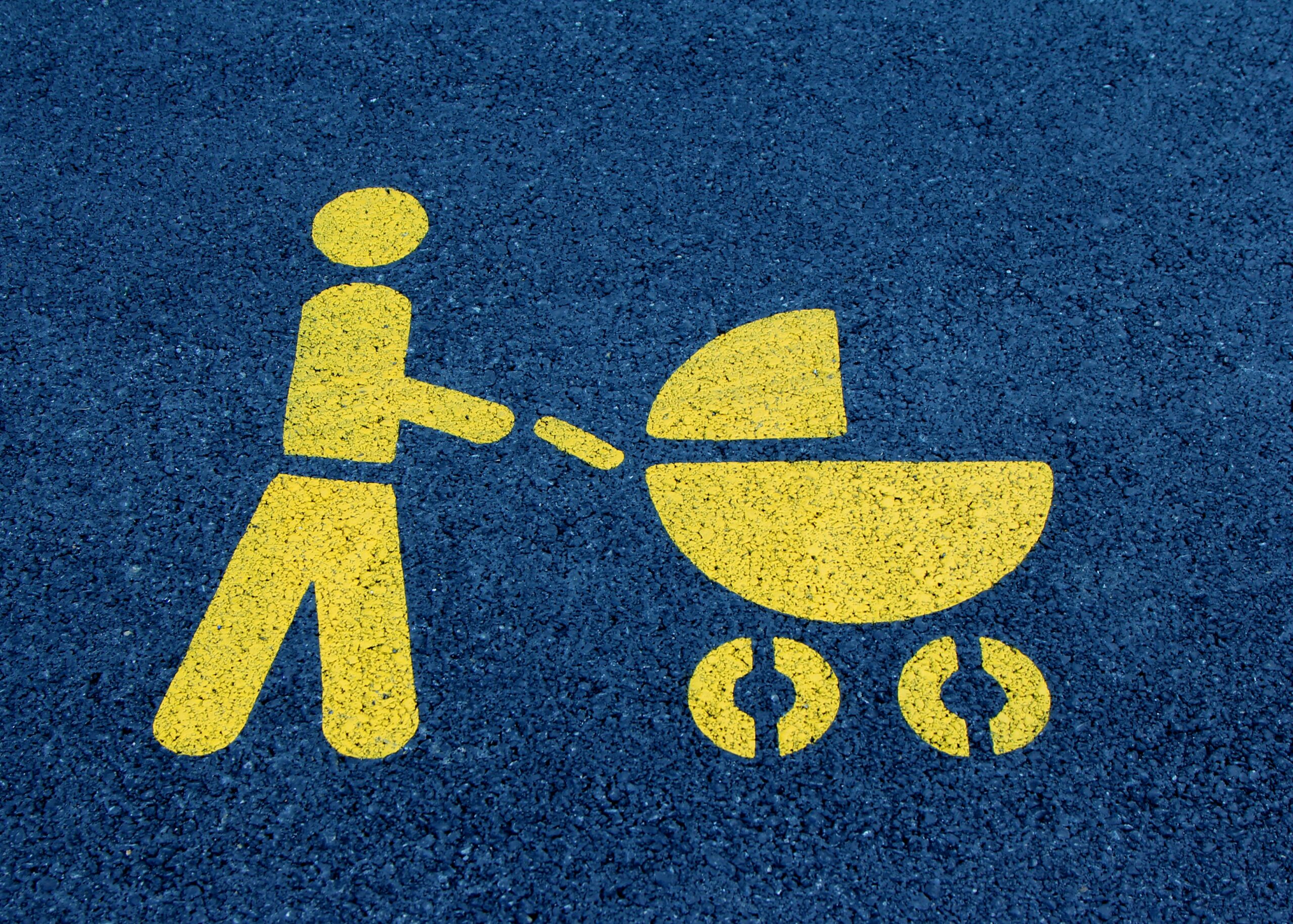The thought of disinheriting a child is unimaginable to most parents. However, there are many reasons why a parent may want, or need, to disinherit their child. Although a decedent can generally disinherit their children, there are a few exceptions, or other ways in which a disinherited child may nevertheless inherit, either inadvertently, or via statute. Further, you cannot disinherit a minor child as funds are required to be used for their maintenance, care, and support.
Why a Parent May Want to Disinherit a Child

There are many reasons a parent may look to disinherit a child as a part of their estate planning, and they’re not all nefarious, spiteful, or mean. In fact, in certain circumstances it may benefit a child to be disinherited. Maybe, for instance, one of your children is self-sufficient and you, or they, would rather their siblings be provided for, and they consent to being disinherited.
Some reasons to disinherit a child include:
- Your child would run into tax issues by receiving an inheritance.
- Depending on your child’s financial state, receiving an inheritance may push them into a higher tax bracket, or result in other tax consequences.
- One or more of your children may be high-net worth and providing for other children may be preferred.
- It may be better to disinherit a child in a situation like this rather than leaving an inheritance to all of your children with the intention that they will provide for their siblings because this could create gift and other tax issues for that child.
- Your child is disabled or otherwise receiving government benefits which would be affected by an inheritance.
- It is likely that an inheritance will disqualify an individual from Medicaid/MassHealth, Supplemental Security Income (SSI), or some other government benefit programs.
- Supplemental needs trusts are an option to provide for these children so that they can receive an inheritance and remain eligible for government benefits. However, the catch is there is a payback provision which states that the agency (typically Medicaid) will be paid back from the trust upon trust termination or beneficiary death.
- Depending on the situation, disinheritance may be a better option, especially if you have other children, so that you are not just leaving a symbolic inheritance to a disabled child that may ultimately end up in the hands of the state.
- Maybe there has been a falling out, and you simply wish to cut them out of your will.
- You provide for this child outside of the will in lieu of a testamentary transfer (i.e., an inheritance after death). This could be done through joint property ownership or beneficiary designations, for example.
- Your child tells you they don’t want anything.
Child creditor issues or spendthrift issues can be addressed within a will or trust, and disinheritance in these instances may not be the best option.
How to Disinherit a Child

Both Massachusetts and New Hampshire law allow for a child to be disinherited. In order to do so, the will must make it extremely clear that the child is being disinherited so that the probate court fully understands this was the intention.
Failure to be intentional and specific when disinheriting a child will result in the pretermitted (omitted) child statute providing for this disinherited child, because it will be deemed an oversight that the child was not mentioned in the will. Further, outside evidence will not be considered. A determination of whether a child is omitted is based on what your will or trust specifically says.
Additionally, if you do not specifically disinherit a child, but give away all your assets by distribution or beneficiary designation to other people, and one of those people predeceases, your child may be able to inherit the failed gift through the intestacy. Naming contingent beneficiaries could address this issue.
For more on New Hampshire intestacy, read our article: What Happens When You Die Without a Will in New Hampshire?.
For more on Massachusetts intestate succession, read our article: Massachusetts Intestacy: What Happens When You Die Without a Will?.
It is also important to consider any issues this may cause for a family, and understand that this may lead to a will contest. To avoid that, depending on the reason for disinheriting your child, you may decide to leave them just enough to not make it worth their time and money – even if you include a “no-contest” clause.
A trust may provide a better means to disinherit child because trusts are private, whereas a will is a public record as a part of the probate record. For more on the differences between wills and trusts, take a look at our article: Will vs. Trust – What is the Difference?.
Exempt Property in Massachusetts
Massachusetts G.L. c. 190B, § 2-403 provides that:
The decedent’s surviving spouse is entitled from the estate to a value at date of death, not exceeding $10,000 in excess of any security interests therein, in household furniture, automobiles, furnishings, appliances, and personal effects. If there is no surviving spouse, the decedent’s children are entitled jointly to the same value. If encumbered chattels are selected and the value in excess of security interests, plus that of other exempt property, is less than $10,000, or if there is not $10,000 worth of exempt property in the estate, the spouse or children are entitled to other assets of the estate, if any, to the extent necessary to make up the $10,000 value. Rights to exempt property and assets needed to make up a deficiency of exempt property have priority over all unsecured claims against the estate, but the right to any assets to make up a deficiency of exempt property abates as necessary to permit earlier payment of the discretionary family allowance. These rights are in addition to any benefit or share passing to the surviving spouse or children by the decedent’s will, unless otherwise provided, by intestate succession, or by way of elective share.
G.L. c. 190B, § 2-403
All this means is that it may be possible for a disinherited child to nevertheless be entitled, in Massachusetts, to $10,000 worth of personal effects.
Depending on the issue for your consideration of disinheriting a child, certain will or trust provisions may be able to address them without a need to disinherit. For a personalized review of your current estate, schedule a free consultation to discuss estate planning options, and determine what plan will be best for you and your family.
No information in this blog post is to be construed as, nor is intended to be, legal or tax advice. Consult with competent legal counsel and/or tax professionals prior to taking any action. Do not rely on any information contained in this blog post as the law changes from time-to-time and this blog post may not be updated to reflect those changes.
© Zuccaro Law, LLC. All Rights Reserved.






